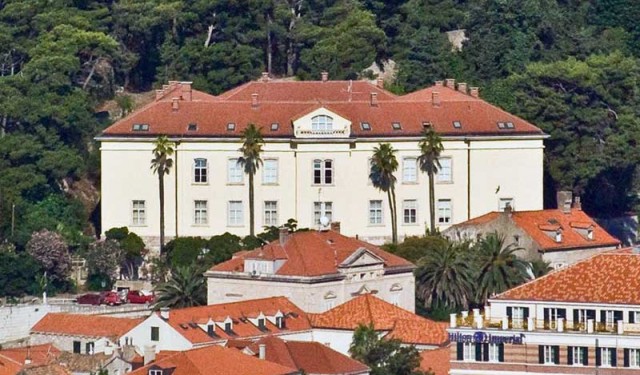Training School, Dubrovnik, 3-6 May, 2016
October 12, 2015 | By Vicky Reid |
A Training School on Technologies of Digital Work was held at the Inter-University Centre Dubrovnik (IUC) in Dubrovnik, Croatia, on May 3-6, 2016.
Getting there Accommodation Background information Download appplication formThe event was organised by the Institute for Development and International Relations (IRMO), based in Zagreb, Croatia.
Course description
Historically, public excitement about new technologies goes through a repetitive cycle. Innovation requires substantial financial support in the form of government and/or venture capital investments. Breakthroughs require large numbers of users and consumers which only a handful of companies manage to obtain. Ideas about novelty and social impact abound in this stage. Once established, companies secure large financial returns and start closing-down innovation in order to establish control and dominance. At that point, national and transnational policy objectives change in order to curtail monopolistic tendencies. The cycle starts over again. The global Internet is in a similar cycle at this point in time. As excitement about the Web 2.0 dwindled down, issues such as privacy, surveillance and commercialisation of online data have emerged to the surface. What was once considered a technological breakthrough, now reveals company policies of cost-reduction by creating globally distributed networks of low-paid and unpaid digital work.
Aim
The aim of this international, multi-disciplinary training school/course for PhD students and early-career researchers ws to bring together perspectives from critical theory, media studies, science and technology studies (STS), design studies, gender studies, as well as policy analysis in order to discuss how digital technologies relate to work, work-life balance and how societies change accordingly. From a critical perspective technologies are used to establish dominance, value extraction, control and perpetuation of the capitalist system through alienated work and shifting of the work-life balance. From a media studies perspective communication technologies enable social and cultural environments that alter media content production, distribution and consumption patterns. STS perspective takes that all technologies are used and interpreted differently, while sometimes also exhibiting characteristics of social agency in various socio-material configurations. From a design perspective it is a challenge to create technologies that will meet and satisfy the constantly changing needs and desires of users. Gender perspective questions how technologies can perpetuate patriarchal structures and contribute to gender digital divide, while also offering emancipatory possibilities. Furthermore, digital technologies present a challenge for policy makers since they develop at a faster rate than national, regional, and supranational (e.g. EU) legislative systems.
This training school/course looked beyond technological, and other, determinisms and instead focuses on technology, first, as a broader organizational, institutional, cultural, political and economic context in which technical systems are embedded; and second, as a concrete socio-technical system with which humans relate. We aim to examine how these contexts shape digital technologies and work, and also how digital technologies are embedded and how they alter the contexts, practices and routines of human work and work-life balance. We are interested in digital technologies and infrastructures, innovation and value creation, peer production, crowdsourcing, creative industries and different methods of studying and regulating these phenomena.
Training school/course directors
- Paško Bilić, Institute for Development and International Relations, Croatia
- Jaka Primorac, Institute for Development and International Relations, Croatia
- Eran Fisher, Open University, Israel
- Pamela Meil, ISF, Munich, Germany
- Bjarki Valtysson, University of Copenhagen, Denmark
- Juliet Webster, Open University of Catalonia, Spain
Format
The training school/course is organised as a combination of lectures, students’ presentations and discussions. Students will be asked to submit their papers (approx. 15 pages) beforehand and present them during the course in order to receive extensive feedback from the course faculty and other participants.
The language of instruction is English.
Applicants
This training school/course is intended for PhD students and early stage researchers (up to 8 years from finishing their PhD) who will present (parts) of their PhD or other research projects. Contributions can be either theoretical or empirical.
Applicants should have a background in social sciences and humanities or technical sciences with interest in social phenomena. The course is open to approx. 20 international trainees.
Applicants are asked to submit their CV (max. 2 pages), an abstract of their PhD project (max. 2 pages) and the filled-in application form to costis1202@herts.ac.uk
The deadline for applications is 15 January, 2016
Students from COST member countries have the possibility to receive a flat rate grant.
Local organiser
Institute for Development and International Relations
Paško Bilić and Jaka Primorac
Lj. F. Vukotinovića 2/II
1000 Zagreb, Croatia



